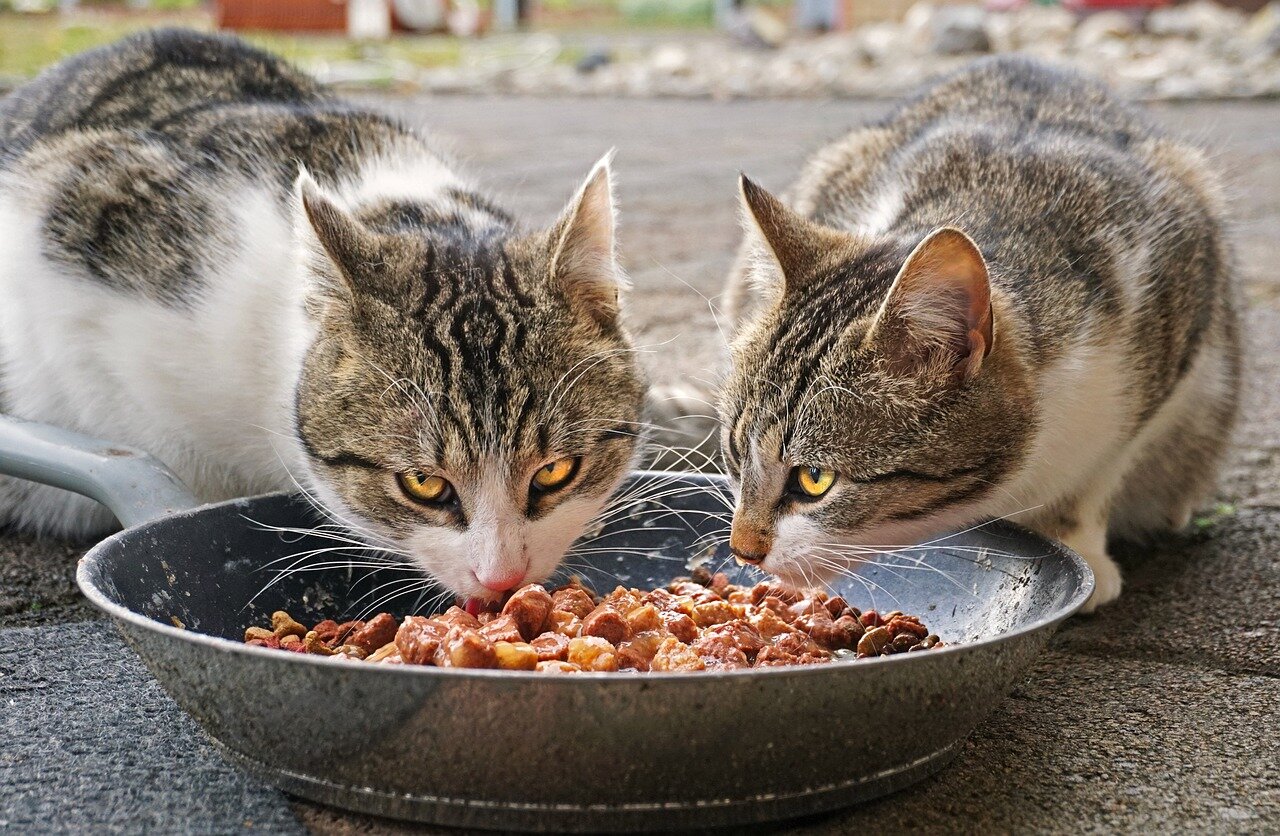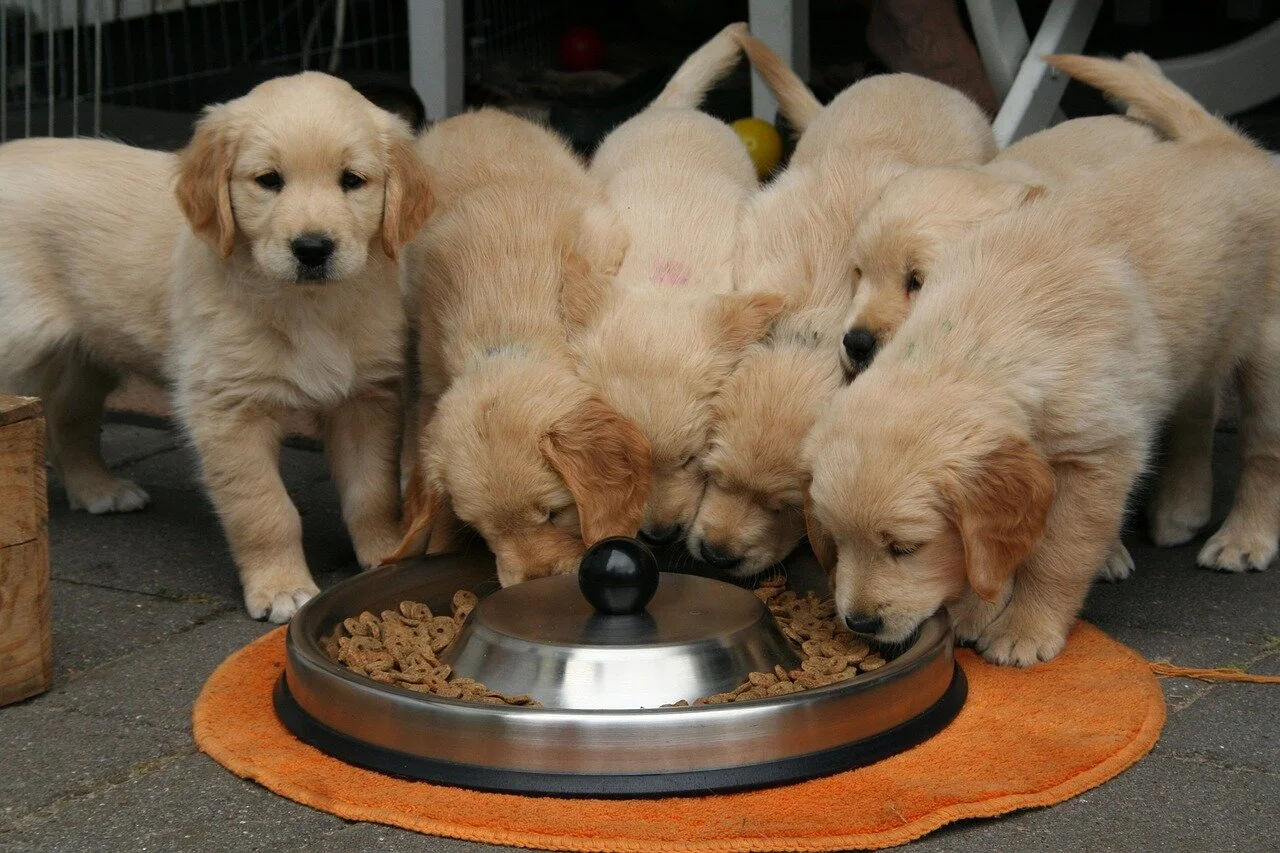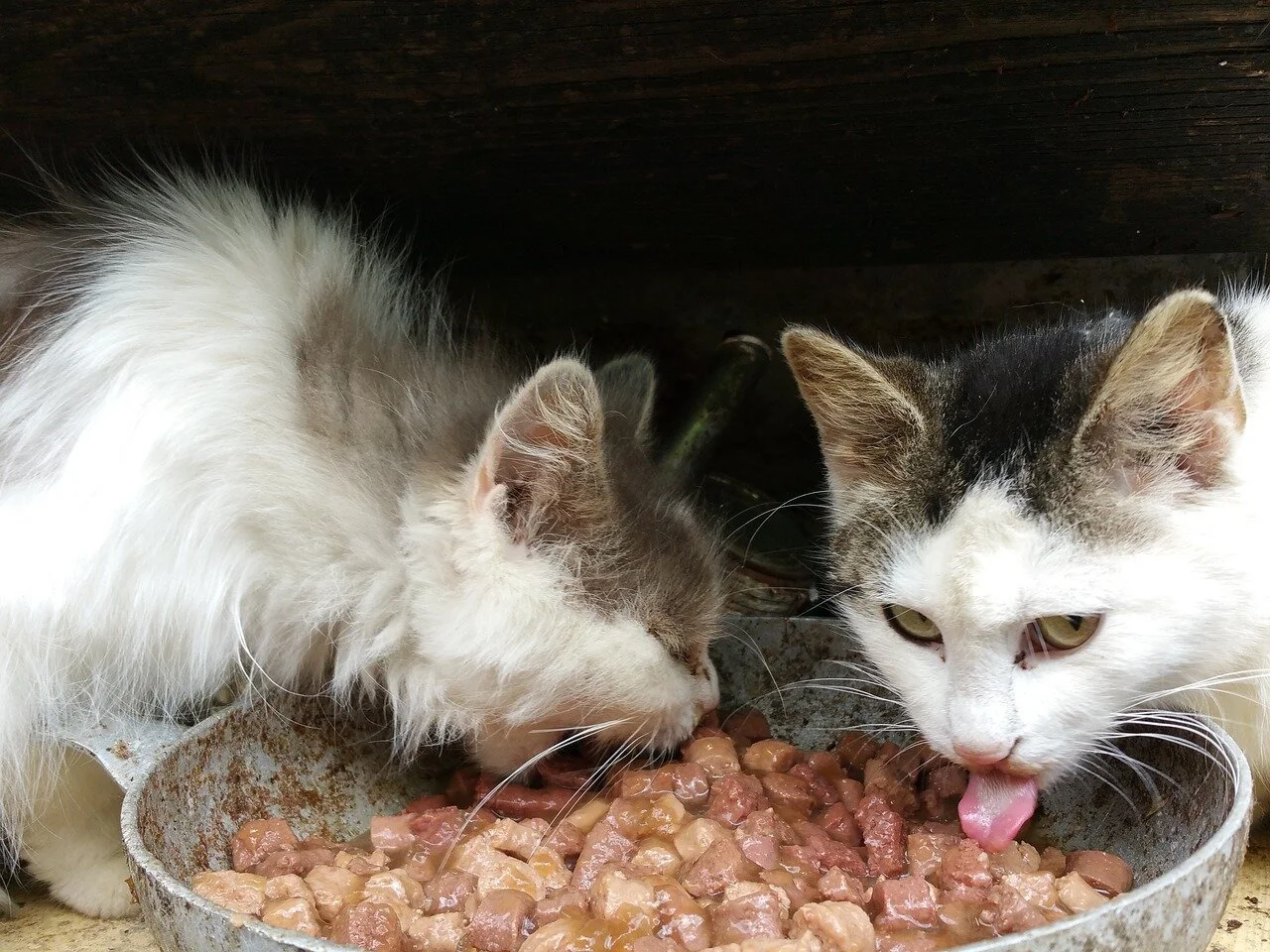Diet & Nutrition
A suitable diet is crucial to the long term health and well being of your pet. There are many factors to consider, such as the breed, size and age of your animal.
At Darwin Vets we stock a great range of quality pet food for all sizes and ages of dogs and cats. Our knowledgeable staff can advise you on the most appropriate diet for your pet. We can also inform you about which foods should be avoided.
Dogs Diet & Nutrition
When you bring your new puppy home it is best to feed them the same diet they had prior to adoption, at least for a few days. This helps to minimise stress and the chance of an upset tummy and diarrhoea. Any new food should be gradually introduced by mixing it with the original diet over seven to 10 days. Gradually increase the amount of the new food and reduce the original food.
Every breed of dog has its own individual growth rate. For example, small breeds mature earlier than large breeds. Please ask our nurses for puppy diet requirements specific to your puppy’s breed. Feeding a growing dog a premium quality balanced diet, and the correct amount of food for weight and age, is the best way to prevent some health problems later in life. Rapid growth in large breed dogs is discouraged as it can predispose them to bone and joint disorders. Overfeeding in small breeds of dog can lead to obesity.
Ideally, up to the age of four-six months, feed them three to four meals a day. Follow the feeding guide on the reverse of the bag or tin, according to weight and age. Meals can be reduced to two meals per day after six months of age. You can slowly introduce a variety of foods to your pup such as lean meat, rice, vegetables and raw bones.
Certain items should be avoided in your dog’s diet
Cooked bones can splinter and cause nasty and painful gut and bowel problems
Corn cobs can cause blockages in the gut and bowel
Onions can cause anaemia
Chocolate is toxic
Grapes can cause kidney problems
Fatty foods can cause gastrointestinal problems, pancreatitis and obesity
Weetbix and milk for puppies is a poor meal – a balanced commercial puppy food is recommended
Calcium supplementation in a puppy’s diet is not necessary if they are being fed a quality commercial puppy food
The lactose in cow’s milk can cause tummy upsets
Above all – enjoy your new puppy and look forward to a long, happy life together. If you have any further questions about caring for your puppy, our vets and nurses are here to help.
Cats Diet & Nutrition
When you bring your new kitten home it is best to feed your kitten the same diet it had prior to adoption for at least a few days. This helps to minimise stress and the chance of an upset tummy and diarrhoea. Any new food should be gradually introduced by mixing it with the original diet over seven to 10 days. Gradually increase the amount of the new food and reduce the original food.
Every cat has its own individual growth rate. Feeding a growing cat a premium quality balanced diet, and the correct amount of food for weight and age, is the best way to prevent some health problems later in life. Commercial foods are the easiest and safest way to feed cats a balanced meal.
Ideally, up to the age of four to six months three to four meals should be fed each day. Follow the feeding guide on the reverse of the bag or tin, according to weight and age. After six months of age, reduce this to two meals a day.
You can slowly introduce a variety of foods to your kitten, such as lean meat and raw bones. Raw chicken wings are great for your kitten to chew on and helps keep teeth clean and in good condition.
Please AVOID the following items in your cat’s diet
Cooked bones can splinter and cause nasty and painful gut and bowel problems
Onions can cause anaemia
Chocolate is toxic
Weetbix and milk for kittens is a poor meal – a balanced commercial kitten food is recommended
Calcium supplementation in a kitten’s diet is not necessary if they are being fed a quality commercial kitten food
The lactose in cow’s milk can cause tummy upsets – if you would like to feed your kitten milk use a special lactose free milk
Above all, enjoy your kitten and look forward to a long, happy life together. If you have any further questions about caring for your kitten, our vets and nurses are here to help.
Benefits of Premium or Prescription Pet Foods
Diet can have a huge impact on your pet’s health and wellbeing, especially if it has an existing health condition. We have a full range of scientifically developed prescription pet foods that are also treatments for a whole range of conditions, including kidney, joint, teeth, urinary and skin problems.
Premium pet food may cost more than a supermarket brand of the same size, but the cost is actually quite comparable when you consider some important factors.
Each Hills, Royal Canin and Advance product contains all the ingredients your pet needs for good nutrition, but none of the ‘fillers’ common in supermarket brands. That means you actually feed your pet less (and they pass less waste, too). Our nurses can calculate the per-day cost of premium food (or prescription food) for your pet and most people are pleasantly surprised at the comparable cost. These companies also offer a money back guarantee for their diets.



